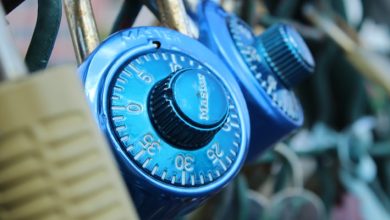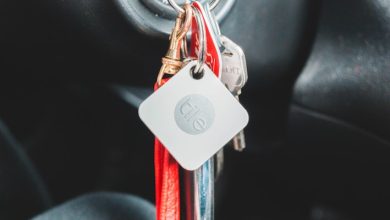How to Choose the Right Wallet for Private Key Security

- Understanding the Importance of Private Key Security
- Factors to Consider When Choosing a Wallet for Private Key Security
- Types of Wallets: Hardware, Software, and Paper
- Comparing the Security Features of Different Wallets
- Tips for Protecting Your Private Key from Unauthorized Access
- The Future of Wallet Technology and Private Key Security
Understanding the Importance of Private Key Security
Understanding the importance of private key security is crucial when it comes to choosing the right wallet for storing your cryptocurrency. Your private key is essentially the password that allows you to access and manage your digital assets. It is a unique string of numbers and letters that acts as a signature for your transactions. Without your private key, you will not be able to send or receive cryptocurrencies.
Ensuring the security of your private key is paramount to protect your funds from unauthorized access and potential theft. If your private key falls into the wrong hands, your cryptocurrencies could be stolen, and there is no way to recover them. That is why it is essential to choose a wallet that offers robust security measures to safeguard your private key.
When selecting a wallet, look for features such as two-factor authentication, encryption, and secure backup options to enhance the security of your private key. Additionally, consider using a hardware wallet, which stores your private key offline and provides an extra layer of protection against online threats.
Factors to Consider When Choosing a Wallet for Private Key Security
When choosing a wallet for private key security, there are several factors to consider to ensure that your cryptocurrency assets are safe and secure. One important factor to keep in mind is the type of wallet you are considering. Hardware wallets, such as Ledger or Trezor, are considered to be the most secure option as they store your private keys offline, making them less vulnerable to hacking attempts.
Another factor to consider is the reputation of the wallet provider. It is important to choose a wallet from a reputable and trustworthy company to reduce the risk of falling victim to scams or fraud. Reading reviews and doing research on the wallet provider can help you make an informed decision.
Additionally, the user interface of the wallet is an important factor to consider. A user-friendly interface can make it easier for you to manage your cryptocurrency assets and transactions securely. Look for wallets that offer features such as two-factor authentication and multi-signature support to add an extra layer of security to your account.
Furthermore, consider the backup options offered by the wallet. It is crucial to have a backup of your private keys in case your wallet is lost or damaged. Make sure to choose a wallet that allows you to easily backup and restore your keys to prevent any potential loss of funds.
In conclusion, when choosing a wallet for private key security, consider the type of wallet, the reputation of the provider, the user interface, and the backup options available. By taking these factors into account, you can ensure that your cryptocurrency assets are safe and secure.
Types of Wallets: Hardware, Software, and Paper
When it comes to choosing a wallet for storing your private keys securely, there are three main types to consider: hardware wallets, software wallets, and paper wallets. Each type offers its own set of advantages and disadvantages, so it’s important to understand how they work before making a decision.
Hardware wallets are physical devices that store your private keys offline, making them less vulnerable to hacking or malware attacks. These wallets are considered one of the most secure options available, as they are not connected to the internet and therefore less susceptible to cyber threats. However, hardware wallets can be more expensive than other types of wallets and may not be as convenient for everyday use.
Software wallets, on the other hand, are programs or applications that run on your computer or mobile device. These wallets are typically easier to use and more convenient for accessing your funds on the go. However, software wallets are more vulnerable to cyber attacks, as they are connected to the internet and therefore more exposed to potential security breaches.
Paper wallets are physical documents that contain your private keys in printed form. These wallets are considered highly secure, as they are not connected to the internet and therefore not susceptible to online threats. However, paper wallets can be easily lost, damaged, or stolen, so it’s important to store them in a safe place and take precautions to protect them from physical harm.
In conclusion, when choosing a wallet for storing your private keys, it’s important to consider the level of security you require, as well as your preferences for convenience and accessibility. Each type of wallet has its own strengths and weaknesses, so be sure to weigh your options carefully before making a decision.
Comparing the Security Features of Different Wallets
When comparing different wallets for private key security, it is essential to consider the security features each one offers. Some wallets may have more robust security measures in place to protect your private keys from unauthorized access or theft. Here are some key security features to look for when choosing a wallet:
1. **Encryption**: Ensure that the wallet uses strong encryption methods to secure your private keys. This will help prevent unauthorized access to your funds and keep your information safe from hackers.
2. **Multi-factor authentication**: Look for wallets that offer multi-factor authentication options, such as requiring a password and a secondary form of verification, like a fingerprint or a one-time code sent to your phone. This extra layer of security can help protect your funds even if your password is compromised.
3. **Backup and recovery**: Choose a wallet that allows you to easily backup and recover your private keys. This will help you regain access to your funds in case your device is lost, stolen, or damaged.
4. **Offline storage**: Consider using a wallet that supports offline storage of your private keys, also known as cold storage. This method keeps your keys off the internet, making them less vulnerable to online attacks.
5. **Open-source code**: Opt for wallets that have open-source code, as this allows for greater transparency and community scrutiny of the security measures in place. Open-source wallets are often more secure and trustworthy than closed-source ones.
By comparing the security features of different wallets, you can make an informed decision on which one offers the best protection for your private keys. Remember to prioritize security when choosing a wallet to safeguard your funds effectively.
Tips for Protecting Your Private Key from Unauthorized Access
When it comes to protecting your private key, there are several tips you can follow to prevent unauthorized access and keep your digital assets secure. Here are some essential measures to consider:
- Keep your private key offline as much as possible to minimize the risk of cyber attacks.
- Encrypt your private key with a strong password to add an extra layer of security.
- Avoid sharing your private key with anyone else, even trusted individuals, to prevent potential breaches.
- Consider using a hardware wallet to store your private key securely and protect it from online threats.
- Regularly back up your private key in multiple secure locations to avoid losing access to your digital assets.
By following these tips, you can significantly reduce the chances of unauthorized access to your private key and safeguard your cryptocurrency investments effectively.
The Future of Wallet Technology and Private Key Security
The future of wallet technology is rapidly evolving, with advancements in private key security becoming a top priority for users. As more people adopt digital currencies like Bitcoin, Ethereum, and others, the need for secure storage solutions is greater than ever before.
Innovations such as biometric authentication, multi-signature wallets, and hardware wallets are leading the way in providing enhanced security for private keys. These technologies offer additional layers of protection to safeguard against unauthorized access and theft.
Biometric authentication, such as fingerprint or facial recognition, provides a unique and secure way to access your wallet. This adds an extra level of security that is difficult for hackers to bypass. Multi-signature wallets require multiple private keys to authorize transactions, making it more challenging for malicious actors to compromise the wallet.
Hardware wallets, which store private keys offline on a physical device, are considered one of the most secure options available. By keeping the keys offline, they are protected from online threats such as hacking and phishing attacks.
As the landscape of wallet technology continues to evolve, it is essential for users to stay informed and adopt the latest security measures to protect their private keys. By choosing a wallet that incorporates advanced security features, users can have peace of mind knowing that their digital assets are safe and secure.



